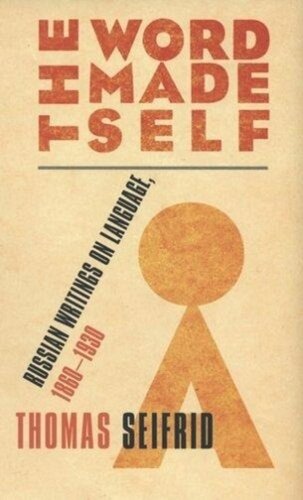

Most ebook files are in PDF format, so you can easily read them using various software such as Foxit Reader or directly on the Google Chrome browser.
Some ebook files are released by publishers in other formats such as .awz, .mobi, .epub, .fb2, etc. You may need to install specific software to read these formats on mobile/PC, such as Calibre.
Please read the tutorial at this link: https://ebookbell.com/faq
We offer FREE conversion to the popular formats you request; however, this may take some time. Therefore, right after payment, please email us, and we will try to provide the service as quickly as possible.
For some exceptional file formats or broken links (if any), please refrain from opening any disputes. Instead, email us first, and we will try to assist within a maximum of 6 hours.
EbookBell Team

0.0
0 reviewsWhen Osip Mandelstam wrote that the Russian word was "sentient and breathing flesh," he voiced one of the most powerful themes in his culture. In The Word Made Self, Thomas Seifrid explores this Russian fascination with the power of the word as expressed in the work of philosophers, theologians, and artists of the Silver Age and early Soviet period. He shows that their diverse works (poems, novels, philosophical and religious tracts) share an attempt to articulate "a model of selfhood within the phenomenon of language." The thinkers included in this book—among them Pavel Florenskii, Roman Jakobson, Aleksei Losev, and Gustav Shpet—frequently responded to the work of contemporary European philosophers even as they drew upon and revitalized powerful elements of early Russian religious thought. On Seifrid's view, this highly original body of writing about language was the essential context for the development of Russian Futurism, Formalism, and the work of Mikhail Bakhtin and the Soviet structuralists—movements and ideas whose influence has extended far beyond Russia and long past their years of efflorescence. This book will have a lasting impact among readers who will be fascinated to discover the richness of this long-suppressed chapter in the history of Russian culture.